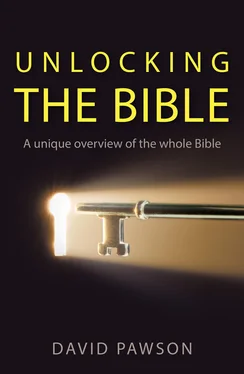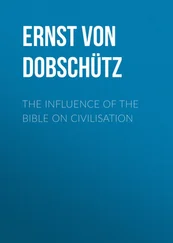Others suggest that God deliberately made things look old. Just as Adam was created as a man, not as a baby, so some believe that God made the earth to look older than it really is. God creates genuine antiques! He can make a tree look 200 years old with all the rings in it, and he can create a mountain that looks thousands of years old. It is a possible theory – God could do that.
The ‘gap’ and ‘illusion’ views both assume that we take the ‘day’ literally and therefore need to find more time to make sense of the geological record.
Geological eras
Another approach is to take a ‘day’ as meaning a ‘geological era’. In this case we are not talking about six days, but about six geological ages, i.e. days 1–3 are not solar days (in any case there was no sun!). This is seen as an attractive theory by many, but it fails to account for the morning and evening refrain which is present from day 1, or for the fact that the six days do not correspond to geological ages.
Mythical days
We have already seen that some interpreters have no problem with the length of the days because they assume that the text is mythological anyway. For them the six days are only the poetic framework for the story – fabled days – and can be overlooked. The main thing is to get the moral out of the story and forget the rest.
School days
One of the most intriguing approaches has been put forward by Professor Wiseman of London University. He believes the days were ‘educational’ days. God revealed his creation in stages to Moses over a seven-day period, so the record we have is of Moses learning about the creative process in the course of a week’s schooling. Others agree but suggest that the revelations took the form of visions, rather like the way John was given visions to record for the book of Revelation.
God days
The final possible interpretation is that these were ‘God days’. Time is relative to God and a thousand days are like a day to him. It could be understood from this that God was saying that the whole of creation was ‘all in a week’s work’ for him.
This serves to emphasize the importance God attaches to mankind in the scheme of creation, since human life can lose all significance if you take geological time as the only measure. For example, imagine that the height of Cleopatra’s Needle on the Thames Embankment in London represents the age of the planet. Place a 10 pence piece flat on top of the needle and a postage stamp on top of that. The 10 pence piece represents the age of the human race and the postage stamp civilized man. Man is seemingly insignificant from a chronological perspective.
Maybe God wanted us to think of creation as a week’s work because he wanted to get down to the important part, us living on planet earth. Out of all creation it is we who are most significant to him. He spends such little space in Genesis detailing creation and so much on mankind.
This theory can be extended. The seventh day has no end in the text, because it has lasted centuries. It lasted all the way through the Bible until Easter Sunday, when God raised his son from the dead. All through the Old Testament there is nothing new created; God had finished creation. Indeed, the word ‘new’ hardly occurs in the Old Testament, and even then is in the negative, as when in Ecclesiastes we read, ‘there is nothing new under the sun’. So God rested all the way through the Old Testament.
There is, therefore, a strong argument for seeing the days in Genesis 1 as God days – God himself wanted us to think of it as a week’s work.
Man at the centre
Turning to Chapter 2, it is immediately obvious that there is a great difference between this and Chapter 1. There is a shift in style, content and viewpoint. In Chapter 1 God is at the centre and the account of creation is given from his point of view. In Chapter 2 man is given the prominent role. The generic terms of the first chapter give way to specific names in Chapter 2. In Chapter 1 the human race was simply referred to as ‘male’ and ‘female’. In Chapter 2 male and female have become ‘Adam’ and ‘Eve’, two particular individuals.
God is also given a name in Chapter 2. In Chapter 1 he was simply ‘God’ (Elohim), but now he is ‘the LORD God’ (as translated in English Bibles). When we read ‘the LORD’ in capital letters in our English Bibles it means that in the Hebrew his name is there also. There are no vowels in Hebrew, so his name is made up of four consonants, J H V H, from which the word ‘Jehovah’ has been coined. This is actually a mistake, because J is pronounced like a Y and V is pronounced like a W. In English pronunciation the letters would therefore be Y H W H, from which we get the word ‘Yahweh’. In the New Jerusalem Bible that word is included just as it is – ‘The Yahweh God’. We saw earlier how the English word ‘always’ conveys the meaning of the Hebrew (the participle of the verb ‘to be’) and it is a helpful word to bring to mind when thinking of God.
Chapter 2 explains more of the relationship between man and God. Chapter 1 included the reference to male and female being made in his image, but in Chapter 2 we see God interacting with man in a way which is unique among all the creatures he had made. There is an affinity between human beings and God that is lacking in every other part of his creation. Animals do not have the ability to have a spiritual relationship with God as humans do. In that sense, humans are like their creator in a unique way.
But we are also told of the differences between God and man, for although man is made in God’s image, he is also unlike him. This is an important truth to grasp if we are to have a relationship with God. The fact that he is like us means that our relationship with him can be intimate, but the fact that he is unlike us will keep the relationship reverent and ensure that our worship is appropriate. It is possible to be too familiar with God on the one hand, or overawed by him on the other.
The importance of names
The name God gave to Adam meant ‘of the earth’ – we might call him Dusty. Later in the chapter the woman too is given a name: Eve, meaning ‘lively’.
It was normal for names to be descriptive, or even onomatopoeic (like ‘cuckoo’), so when Adam names the animals he uses descriptions which then become their name. Names in the Bible are not only descriptive, they also carry authority in them. The person who gives the name has authority over whoever or whatever receives the name. Thus Adam names all the animals, signifying his authority over them. He also names his wife, a feature still remembered today when the woman takes the man’s surname when they marry.
This chapter also includes names of places. The land is no longer merely ‘dry land’: we are told of the land of Havilah, Kush, Asshur and the Garden of Eden. The water is named too. There are four rivers mentioned, and the Tigris and Euphrates are still known today. This puts the Garden of Eden somewhere near north-eastern Turkey, or Armenia, where Mount Ararat stands and where some believe Noah’s ark is buried.
Human relationships
In Genesis 2 we see man at the centre of a network of relationships. These define the meaning of life. The relationships have three dimensions: to that which is below us, to that which is above us, and to that which is alongside us. Or, to put it another way, we have a vertical relationship to nature below, a vertical relationship to God above, and a horizontal relationship with other people and ourselves. Let us look more closely at these three dimensions.
Our relationship to nature. The first dimension is the relationship we have to the other creatures God has made. This relationship is one of subjugation – animals are given to serve mankind. This does not mean we have a licence to be cruel or to make them extinct, but it does mean that animals are further down the scale of value than human beings.
Читать дальше











